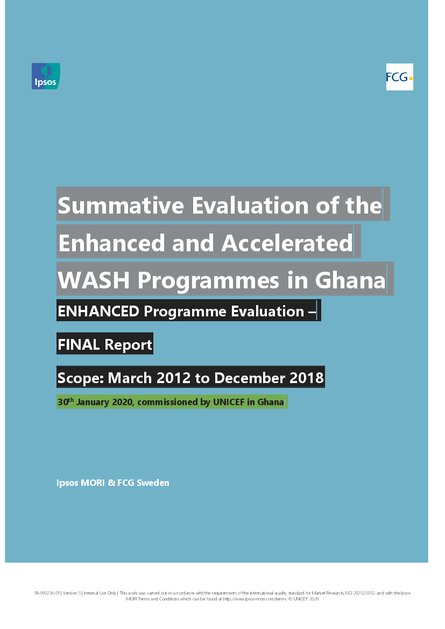
UNICEF implemented the Enhanced Water, Sanitation and Hygiene (WASH) programme in the five most deprived regions of Ghana: Northern, Upper East, Upper West, Volta, and Central regions, from March 2012 until December 2018. The programme sought to achieve long-lasting improvements in the health and wellbeing of children in schools, and women and men in rural communities, by reducing inequitable access to WASH services and changing behaviours. The programme had three specific objectives: 1) To improve access to, and use of, water, sanitation and hygiene services; 2) To improve water, sanitation and hygiene practices and behaviours; and 3) To strengthen the enabling environment and enhance national systems and capacity. It is largely based around a Community-Led Total Sanitation (CLTS) approach.
The UNICEF Ghana Country Office commissioned Ipsos MORI, together with its partner FCG Sweden, to undertake an independent evaluation of the Enhanced WASH programme.
This evaluation has a double-fold purpose: accountability (to both donors and expected beneficiaries) and organisational learning (both amongst UNICEF staff and their governmental counterparts). With that in mind, the objectives of this evaluation are to determine the extent and quality of the programme’s achievements as well as to identify the lessons learned and put forward key recommendations to the evaluation’s key users to support future programming, including: government at all levels. UNICEF’s Ghana country office, Global Affairs Canada (GAC), project implementing partners, and the WASH sector in general (including other donors and international organisations, civil society, and the private sector).
